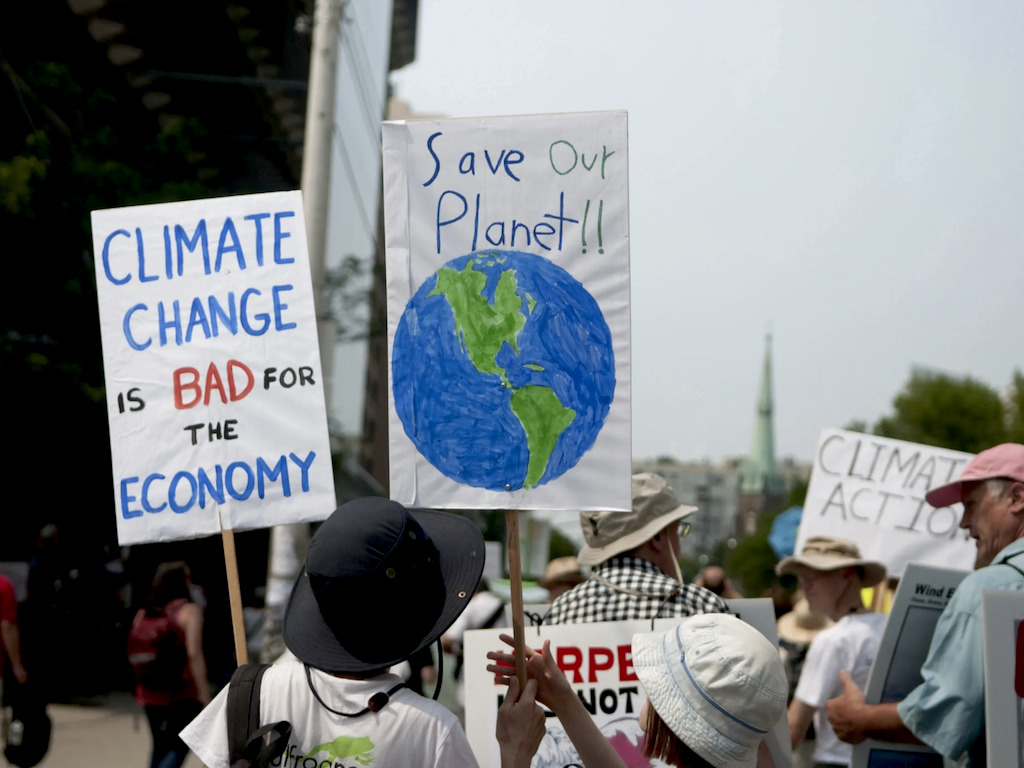4 Mins Read
Nearly two-thirds of the global population say that climate change is an emergency that must be addressed, in what is the world’s largest public opinion poll on climate change to date. The U.N. survey, organised with the University of Oxford, involved more than 1.2 million respondents spanning 50 countries – including half a million people under the age of 18 thanks to the use of unconventional digital polling methods that could reach the traditionally unrepresented demographic.
The world has spoken and have given a resounding yes to wide-ranging policies to tackle the climate crisis, despite the ongoing coronavirus pandemic in a new global opinion poll. Carried out by the United Nations Development Programme (UNDP) and the University of Oxford between October and December 2020, the People’s Climate Vote represents the world’s biggest public opinion survey on climate change, covering 50 countries with over half of the world’s population.
More than 1.2 million people responded to the survey, including half a million people under the age of 18, a constituency that has for years been unable to make their voices heard in politics as they are typically unable to vote in regular elections. In many participating countries, it also marked the first-ever time that large-scale polling has been conducted on the topic of climate change, asking respondents whether they see the issue as a global emergency and their views on eight key action policies.
Over two-thirds of respondents – 64% – believe that climate change is a global crisis, in what is the clearest indication of the world consensus that more must be done to tackle the biggest planetary threat we face today. Results also showed that people want broad climate policies that go beyond current government commitments.

The results of the survey clearly illustrate that urgent climate action has broad support amongst people around the globe, across nationalities, age, gender and education level.
Achim Steiner, Administrator, UNDP
Read: President Biden signs executive order for U.S. to rejoin Paris Agreement on first day in office
Measures that received the most public support include forest and land conservation (54%), a shift to renewable energy sources (53%), the adoption of climate-friendly farming methods (52%) and investment in green businesses and jobs (50%).
Interestingly, the least popular policies were plant-based diets (30%) and affordable insurance (32%), despite the fact that the former has been highlighted as one of the most crucial actions individuals can take to reduce their carbon footprint, given the enormous emissions stemming from the animal agriculture industry. In the report, the authors do note that the policy does not signify that people are “against” such measures, but simply suggests indifference or an “opportunity for further education”.
While the younger generation were more likely to say that climate change is an emergency, the data crucially shows that there is widespread agreement across all age groups, with more than half (58%) of people over 60 years of age calling for action on the climate crisis.
“The results of the survey clearly illustrate that urgent climate action has broad support amongst people around the globe, across nationalities, age, gender and education level,” said Achim Steiner, administrator at the UNDP.
“But more than that, the poll reveals how people want their policymakers to tackle the crisis. From climate-friendly farming to protecting nature and investing in a green recovery from Covid-19, the survey brings the voice of the people to the forefront of the climate debate.”
The survey additionally found a direct correlation between a person’s level of education and their likelihood to back climate action, with very high recognition of the climate crisis recorded among those who were university or college educated in all countries – including those in lower-income states like Bhutan (82%), as well as wealthy states like Japan (82%) and France (87%).
In order to attract participation from hard-to-reach audiences, such as youth below the age of 18, the poll was distributed across mobile gaming networks like advertisements in video games like Angry Birds, Sudoku and Words With Friends. Experts at the University of Oxford then weighted the enormous sample, ensuring that it would be representative in terms of age, gender and education profiles in the survey.

Recognition of the climate emergency is much more widespread than previously thought. We’ve also found that most people clearly want a strong and wide-raging policy response.
Professor Stephen Fisher, University of Oxford
Read: New Oxford paper outlines 4 steps to save biodiversity & the planet
“The survey…has shown us that mobile gaming networks can not only reach a lot of people, they can engage different kinds of people in a diverse group of countries,” commented sociology Professor Stephen Fisher at the University of Oxford.
“The Peoples’ Climate Vote has delivered a treasure trove of data on public opinion that we’ve never seen before. Recognition of the climate emergency is much more widespread than previously thought. We’ve also found that most people clearly want a strong and wide-raging policy response.”
These results will no doubt put much-needed pressure on countries to ramp up their climate commitments when they come together for the key U.N. climate conference negotiations in Glasgow in November this year.
Lead image courtesy of Shutterstock.




